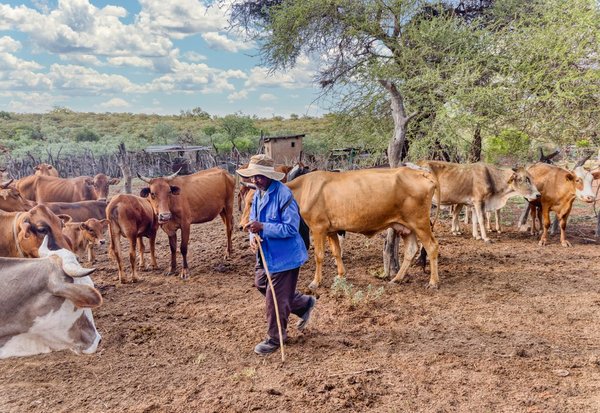- Share this article
- Subscribe to our newsletter
New study sheds light on farmers’ awareness of antibiotic risk
Farmers in Kenya have “considerable knowledge” on different aspects of antibiotics risks – including antimicrobial resistance – associated with their use on livestock in Kenya. This conclusion is arrived at by a joint study by scientists of CABI’s regional centre for Africa in Nairobi/Kenya, the University of Nairobi, the University of Warwick/UK, and Vétérinaires sans Frontières (VSF) Suisse. The researchers conducted a survey among 319 farming households in five counties in Kenya and found that 19 of 21 knowledge statements on antimicrobial resistance (AMR) and safe use of antibiotics were answered correctly by 55 to 89 per cent of respondents. While the number of livestock owned was the factor most positively influencing farmers’ knowledge on AMR and safe use of antibiotics, certain knowledge gaps remain, and their “practices continue to constitute considerable risk of further AMR development”, the researchers maintain.
Majority buy antibiotics without prescription
According to the study, around 80 per cent of households surveyed use antibiotics in their livestock, and 58 per cent administer the antibiotics themselves. The vast majority of farmers (95 %) bought antibiotics without a prescription. Antibiotics are used for both therapeutic and non-therapeutic purposes, the latter in form of growth promoters and feed enhancers in poultry. Although many farmers reported risky antibiotic practices, most (76 %) were aware of bacterial AMR. Here, family or friends were the most common source of information, accounting for 46 per cent of respondents seeking information from this informal network. About a third of farmers (31 %) had received information from medical doctors and other health professionals, while only 24 per cent had been informed about AMR information by trained veterinarians and animal health workers. One further important finding of the study is that the withdrawal periods reported by farmers are shorter than the officially recommended periods.
Policy interventions and awareness raising needed
“Kenya has made notable progress towards creating knowledge and awareness of farming communities on the risks and requirements associated with antibiotic use in livestock,” says Harrison Rware, Monitoring and Evaluation Officer at CABI and lead author of the study, summarising the findings. “Nonetheless, farmers’ antibiotics practices continue to constitute considerable risk of further AMR development. This shows that knowledge is not enough to ensure fundamental behavioural change.”
Rware demands an enabling environment driven by effective policy interventions and enforcement to ensure compliance with set guidelines for antibiotic use as well as research on and deployment of alternatives, such as probiotics, vaccinations, and disease prevention measures. “There also needs to be continued public awareness raising and education using multiple channels to reach farmers and strengthen cross-sector, multi-stakeholder collaboration to address the multi-national complexities of AMR,” he stresses.
(CABI/sri)
Reference:
Rware, H., Monica, K.K., Idah, M. et al. Examining antibiotic use in Kenya: farmers’ knowledge and practices in addressing antibiotic resistance. CABI Agriculture and Bioscience 5, 21 (2024).
DOI: 10.1186/s43170-024-00223-4
Read paper in full open access





Add a comment
Be the First to Comment